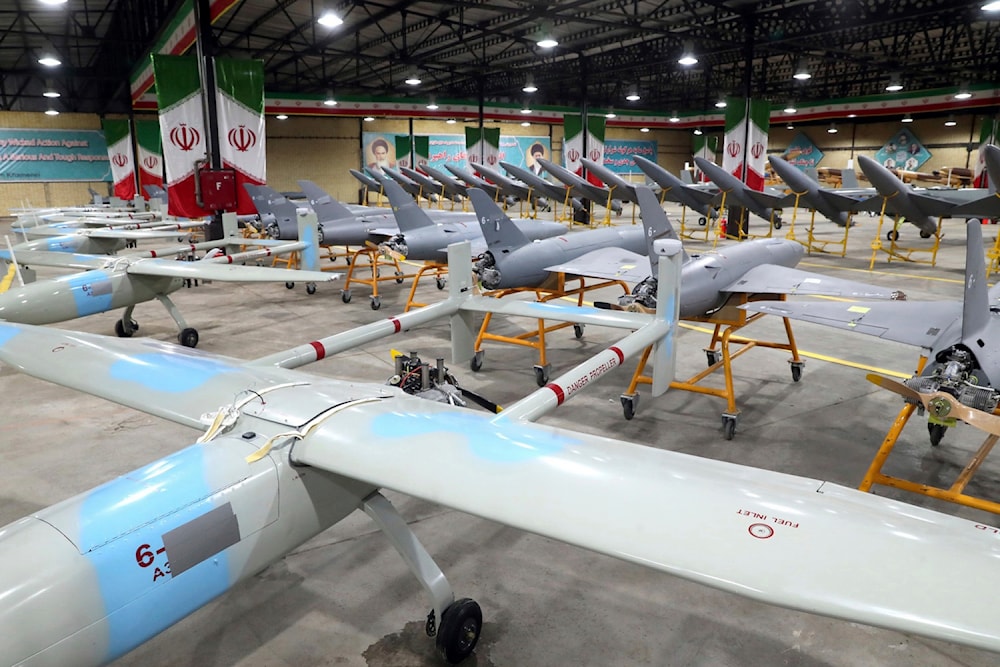Iran's weapons supply strategy; a model Australia can learn from: ASPI
Iran's strategy for the procurement and supply of munitions has caught the attention of an expert who urged the Australian government to use some of the suggested methods.
-

Iran-made drones are displayed in a ceremony marking to provide to the nation's army, on April 20, 2023. (AP)
Iran has established a robust model for procuring and supplying munitions, which Australia should learn from, a military affairs expert revealed.
The Strategist, the commentary and analysis site of the Australian Strategic Policy Institute, published an article written by Dr. Peter Layton, an expert on grand strategy and military affairs, titled "Want a robust Australian munitions industry? Study Iran."
In the piece, Layton urged Australian authorities to learn from Iran's guided munitions program, saying that Tehran knows "a thing or two about robust supplies" of such weapons.
The expert brought up the point based on a recently agreed-upon National Defense Strategy in which Australian authorities plan to create a domestic industry to procure guided weapons and explosive ordnance. The author pointed to strategies used by Iran to avoid sanctions and restrictions imposed by its enemies, as well as its ability to establish and execute several means to deliver weapons to buyers and allies.
According to Layton, Iran exports "different kinds of munitions, such a rockets, missiles, and so-called kamikaze drones to proxy forces across the Middle East and increasingly to Russia."
The strategy involves transferring complete weapons, supplying components to be assembled by buyers, upgrading kits for rounds already in stock, and establishing foreign manufacturing capabilities.
He also pointed to the simple yet effective designs of Iranian weapons systems, which allow for more maneuverability when supplying the weapons. Layton underlined the fact that Iran's defense industry is largely state-owned which permits minimal payments for intellectual property rights to others.
"Don’t dismiss such practices as bizarre. They may be relevant to Australia," Layton said.
Read more: Iran's military, world leading missile-drone arsenal: Overview
Major conflicts may prove detrimental to Western militaries
Like other Western countries, Australia's military would struggle to procure and secure munitions at times of major conflict. Such scenarios would have minimal effect on Iran, a country that has been hardened by years of restrictions and war that have molded its defense industry and strategy.
Layton says that Australia may be "unable to make parts available for export; physical or cyber attack may knock out their factories."
On supply chains for munition, components could also be subject to targeting, so Layton suggested that the country stock up on imported components to continue local high-rate munition manufacturing, during times of conflict.
Additionally, Australia and the original manufacturer could take cues from Iran in simplifying the production process for goods intended to be manufactured in Australia, he added.
Streamlining manufacturing not only fosters the establishment of local alternative suppliers but also bolsters supply chain resilience and potentially reduces costs, the expert explained.
Read more: US to assist Australia in missile manufacturing and export

 3 Min Read
3 Min Read








